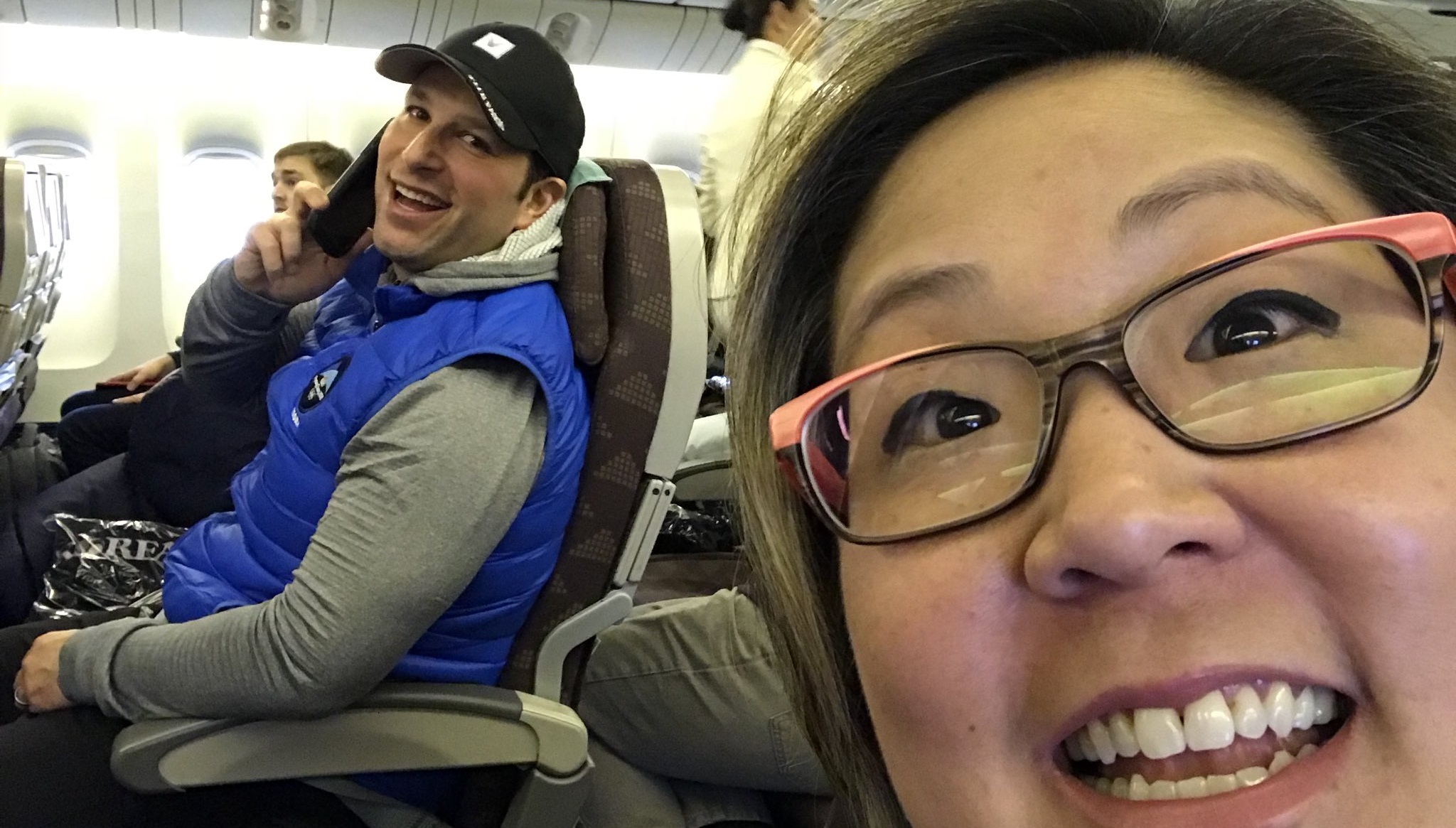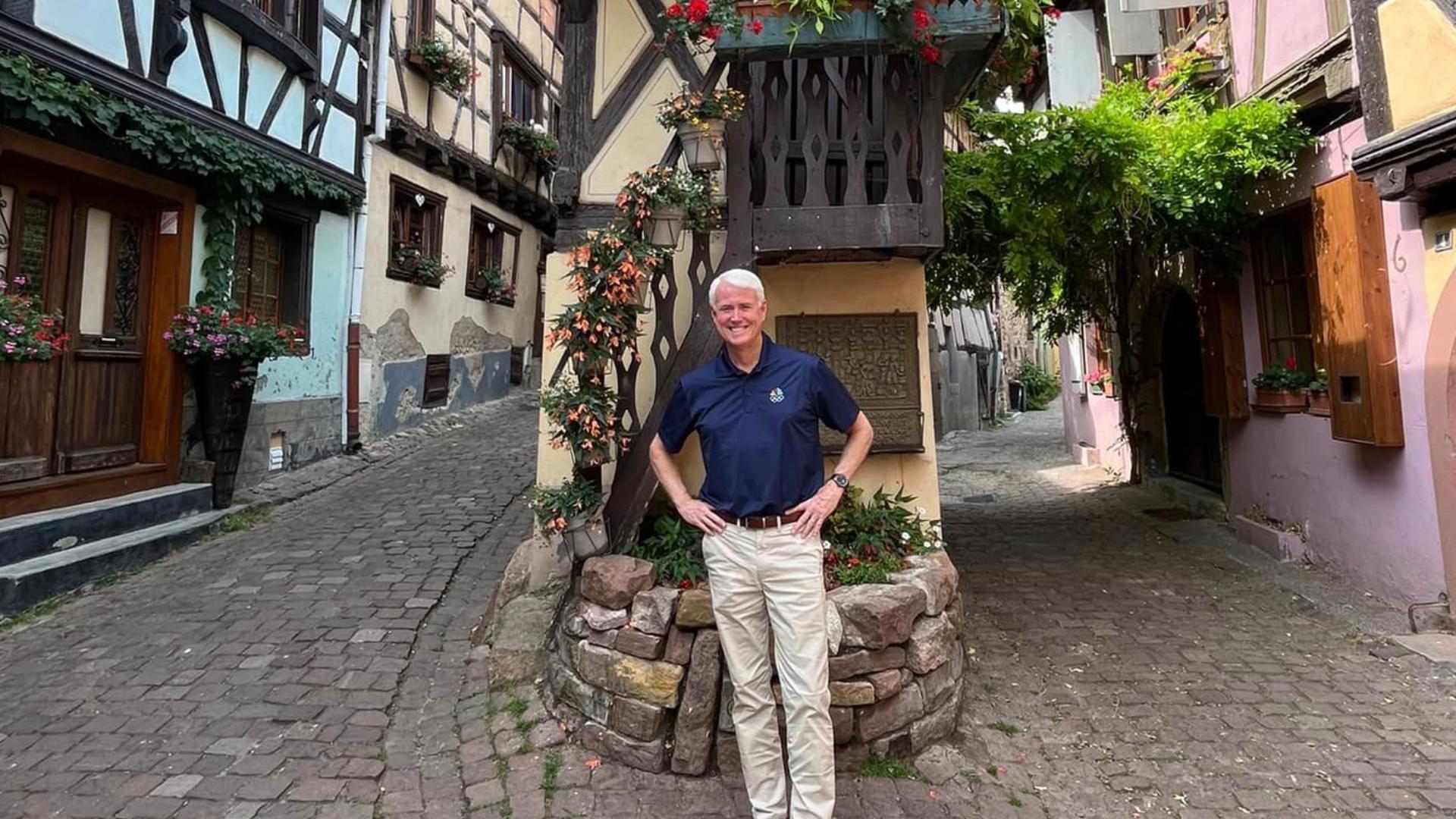PYEONGCHANG - They've been there, done that... and are fired up to do it again.
KARE 11's Dave Schwartz and Bea Chang are Olympic veterans, both having traveled the globe multiple times to navigate the logistical, technical, and physical challenges that covering the games present.
Schwartz, weekend anchor and longstanding member of the KARE 11 Sports team, and Chang, KARE's Social Media Manager and noted sports photojournalist, left the Twin Cities early Monday and arrived in PyeongChang some 13 hours later. Both were grateful both to Korean Air, and the people of South Korea for their warm welcome.
We had a change to ask Bea and Dave some questions about covering the Olympic Games before they get rolling, and why they're looking forward to doing it together.
Q: How many Olympics have you covered?
Dave: This is my 3rd Olympics: 2014 in Sochi, 2016 in Rio, 2018 in Pyeongchang.
Bea: These games will be my third games but only my second with Dave. Sochi was our other one.
Q: Many people think that working an event on the world stage (like an Olympics or a Super Bowl) is fun and glamorous. What are a couple of things you’d like to share with viewers that they might not know.
Bea: The hours are extremely long… like sometimes 20 hours a day… and it’s definitely not all glamorous. Most of our time is spent getting from place to place because we travel via shuttle buses everywhere. And there is a lot of time waiting for games to end, or athletes to show up. I would say if people saw how much time we spent waiting and taking buses everywhere they should be shocked.
Dave: The days are LONG. We aren’t watching these events from premium seats. I remember watching the USA-Russia men’s hockey game in 2014 from a basement mixed zone waiting for players to come through. We hustle everywhere and we have to wear a lot of hats. But in the end we get to be on the forefront of sports history and we get paid to do it. It’s not a bad gig.
Q: What is your biggest fear when covering an event like this… security… equipment failure…. Etc.?
Dave: I think we all have a little fear for our safety. I mean, in Russia we were worried about terrorists, in Rio it was small crimes and kidnappings, and here it’s a nuclear threat nearby. There is always some threat when you’re covering a large event like this but there is also a chance you could leave your house tomorrow and get hit by a bus. In my mind the thrill of getting to experience something so few people do is worth the risk.
Bea: My biggest fear covering these events is really missing time with my family. But I would be lying if I said I didn’t worry about things happening at a world event like this. I put all of my focus on the work while I’m covering the games and that helps a lot.
Q: You both have indicated you work together well. What is key to a successful working partnership in a high-stress environment like the Olympics? What makes you particularly suited to this duty?
Bea: Dave and I offset each other because when one is stressing out, the other is usually the voice of reason and is able to calm things down.
Dave: More than anything I think we both understand that the parts are greater than the whole. You’ve got to be a good teammate when you work the Olympics. Sometime you’re doing an interview, sometimes your shooting an interview for someone else. We all have to help each other. Plus, Bea and I love to crack jokes and can laugh at ourselves.
Q: Despite the fact it is a TON of work… what do you draw from the Olympic experience that makes it worth going back?
Dave: It’s the chance to be on the front lines of history. In the journalism business we live to tell good stories and do it before anyone else does. The Olympics allow us that. As an NBC station we get much better access than anyone else back home. It’s like running a race when you get to start half a lap up on the competition.
It’s also truly a pleasure to cover Olympic sports. The athletes are just regular people with extraordinary talents, and so you get so much more invested in them. You root for them, you get sad for them if they don’t do well. It’s just so much more enjoyable to cover.
Bea: The biggest thing that draws me back to the Olympics is the chance to work as a team with a great group of journalists for TEGNA. And of course, the ability to travel, usually to a different country.


